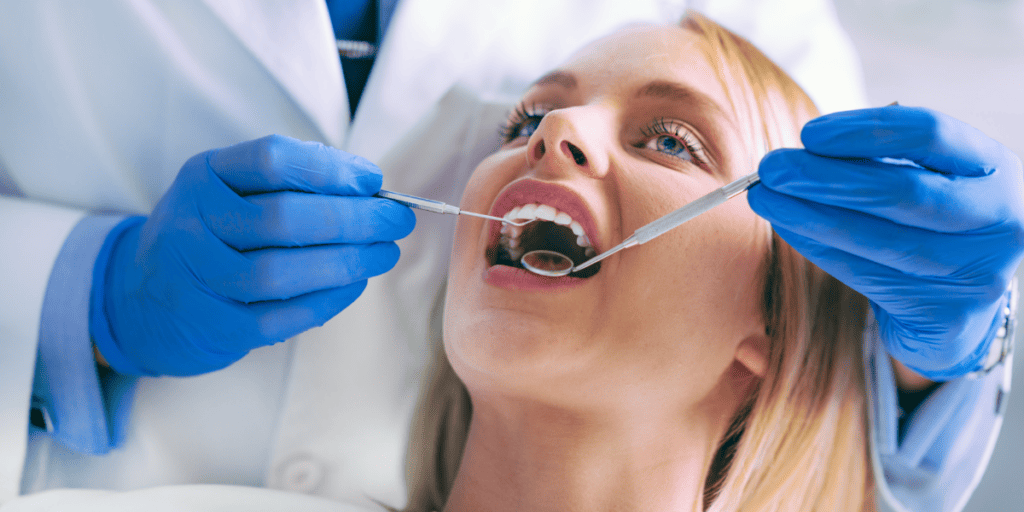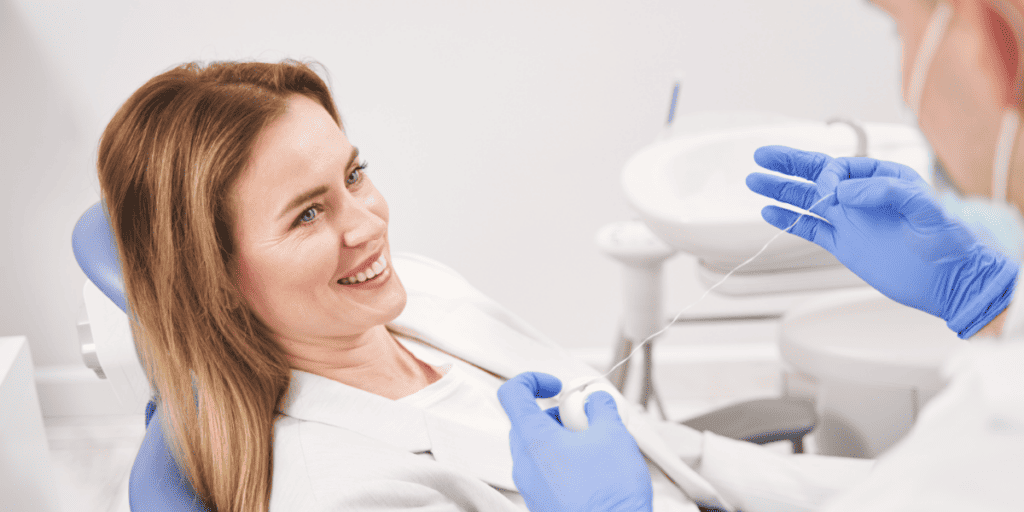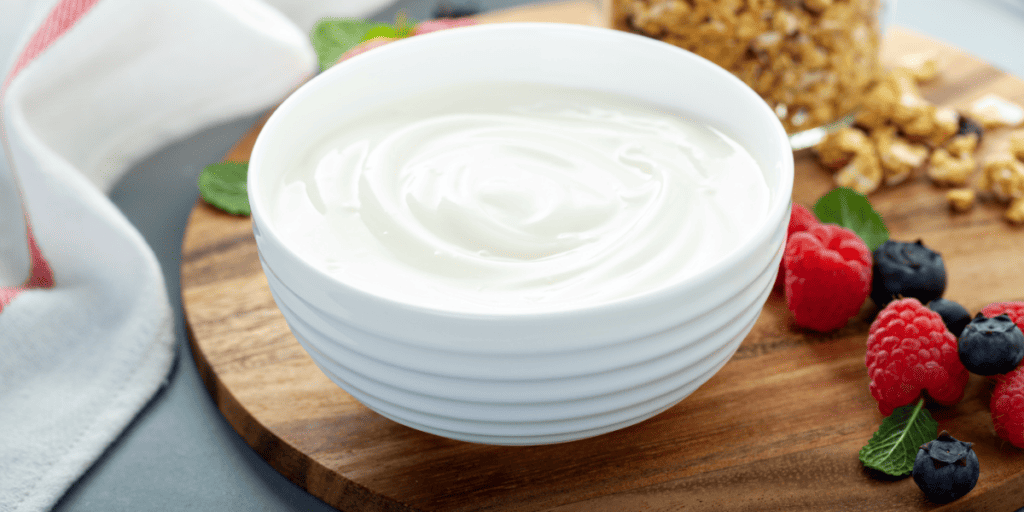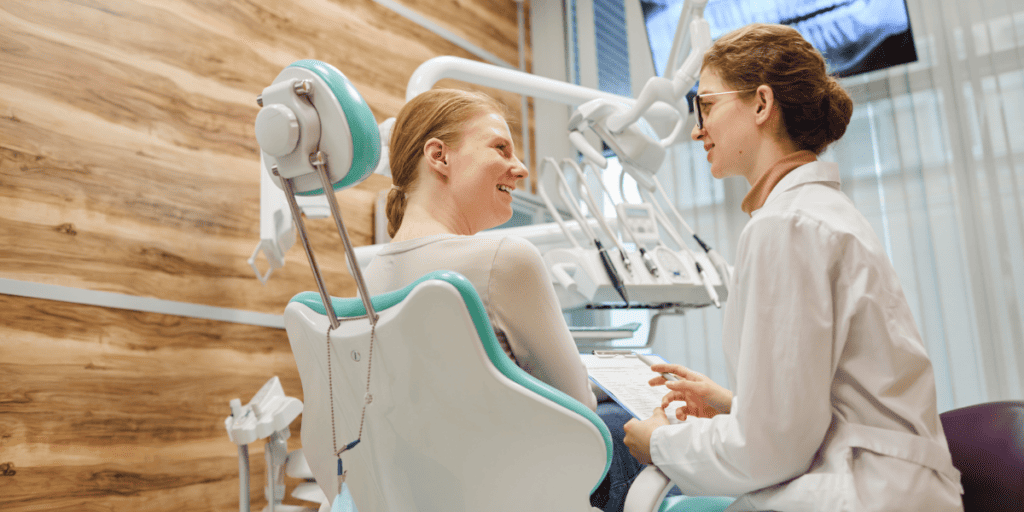November 27, 2023
How Long Do Gums Take To Reattach After A Deep Cleaning?

When it comes to maintaining our oral health, regular dental cleanings play a crucial role. However, for some of us dealing with periodontal or gum diseases, a more intensive procedure, such as deep cleaning, may be necessary. A common question many patients have after undergoing deep cleaning, also known as scaling and root planing, is, “How long does it take for gums to reattach after deep cleaning?”
Healing and reattachment process
Deep cleaning is a therapeutic procedure that tackles the root cause of gum disease – bacterial plaque and tartar. Once these are removed, your gums have a chance to heal and reattach to your teeth. However, factors such as your overall health, oral hygiene habits, and the severity of gum disease before treatment can influence the healing process and the time frame.
Immediate aftermath of deep cleaning
After the procedure, it’s normal to experience mild discomfort, gum swelling, and minor bleeding for a few days. Rinsing your mouth with warm salt water can help soothe the gums. Your dentist may also recommend a medicated mouth rinse or an oral antibiotic to aid healing and prevent infection.
Initial healing period
Generally, initial healing and reduction in inflammation can be seen a week or two after deep cleaning. Improved oral hygiene practices such as daily brushing and flossing are vital during this period to remove plaque and prevent further tartar buildup.
Gum reattachment
The exact time it takes for gums to reattach to the teeth after deep cleaning can vary. For most people, gums start to reattach and snugly fit around the teeth two to four weeks after the procedure. Light pink colour, firm texture, and absence of bleeding are signs of healthy gums.
Long-term healing
Full recovery and complete reattachment can take a few months to a year. Regular follow-up appointments with your dentist will be necessary to monitor the healing process, ensure the infection is not returning, and provide additional treatments if necessary.
How soon can gums reattach after deep cleaning?
After undergoing a deep cleaning procedure, many patients wonder how long it will take for their gums to reattach. While the exact timeline can vary from person to person, it generally takes several weeks for the gums to heal and reattach to the teeth. It is essential to maintain good dental hygiene throughout this period. This includes regular brushing and flossing, as well as attending follow-up appointments with the dentist to monitor the healing process.

Additionally, maintaining a healthy lifestyle and avoiding tobacco use can also promote faster healing of the gums. It is important to remember that the healing time may differ depending on the severity of the gum disease and individual factors. Therefore, it is best to consult with a dental professional for personalized advice and guidance.
When to eat after a deep cleaning procedure
After undergoing a thorough dental cleaning in Belleville, it is essential to give your mouth some time to recover before eating. The duration will vary depending on the individual and the extent of the cleaning. While some people may be able to eat immediately after the procedure, it is generally recommended to wait at least 30 minutes to an hour before consuming any food or beverages.
This allows the numbing agents or anesthesia to wear off completely and gives your gums and teeth a chance to settle. Additionally, waiting to eat can prevent any potential irritation or discomfort that may occur from chewing on a sensitive or numb mouth. Ultimately, it is best to follow the specific instructions and advice provided by your dentist for optimal healing and recovery after a deep cleaning.
What should you avoid eating after deep teeth cleaning?
After undergoing deep teeth cleaning, it is important to be mindful of your diet to ensure proper healing and maintain oral hygiene. While it may be tempting to indulge in your favourite foods right after the procedure, there are certain types of food that you should avoid.
Firstly, sticky and chewy foods such as caramel, taffy, or chewing gum can easily get stuck in the newly cleaned areas and may cause irritation or discomfort. Additionally, hard foods like nuts, chips, or hard candies can put unnecessary pressure on the gums and potentially damage sensitive areas. Acidic foods and beverages like citrus fruits, tomatoes, and sodas should also be avoided as they can cause further sensitivity and irritate the gums.

It is recommended to opt for softer foods like soups, yogurt, mashed potatoes, and smoothies, which are easier to consume and less likely to disrupt the healing process. By being cautious of your food choices, you can promote a faster and smoother recovery after a deep tooth cleaning.
Ensuring optimal healing
While individual healing times will depend on the factors mentioned above, there are steps you can take to foster optimal healing:
Maintain good oral hygiene: Brush at least twice daily, floss daily, and rinse your mouth with an antimicrobial mouthwash. This will help keep your mouth free from plaque and promote healing.
Healthy diet and lifestyle: A balanced diet rich in vitamins C and E can support gum healing. Avoid smoking and limit alcohol consumption, as these habits can delay healing and worsen gum problems.
Regular dental visits: Follow your dentist’s recommended schedule for follow-up visits, typically every three to four months. Regular cleanings can remove any new tartar buildup and allow your dentist to monitor your progress.
Follow post-treatment instructions: Your dentist will provide post-treatment care instructions. Following these instructions, which may include taking prescribed medications, can help the healing process.
Takeaway
Deep cleaning can be a game-changer for those dealing with gum disease, but it’s just the first step towards healthier gums. The procedure provides a clean slate for your gums to heal. However, it’s the steps you take post-procedure that determine the success of the treatment in the long run.
Remember, gum disease is a chronic condition that requires ongoing attention and care. Maintaining impeccable oral hygiene habits and periodically checking in with your dentist are essential to ensure your gums heal properly and remain healthy. If you’re concerned about your gum health, never hesitate to reach out to your dentist. After all, a healthy mouth is the cornerstone of a healthy body and a confident smile.
Schedule an appointment

With excellent dental technology and highly skilled professionals, scheduling an appointment with Quinte Smiles Dental Centre for your deep teeth cleaning will be a breeze. Say goodbye to plaque and tartar buildup, and hello to a brighter, healthier smile. So what are you waiting for? Schedule your appointment today!

What to Eat After Wisdom Teeth Removal Day 1?
What to Eat After Wisdom Teeth Removal Day 1? Undergoing wisdom teeth removal can be daunting, but knowing what to eat on the first day

Can I Eat Rice After Wisdom Teeth Removal? Nutritional Tips
Can I Eat Rice After Wisdom Teeth Removal? Nutritional Tips So, you’ve had your wisdom teeth removed. Congratulations on taking that big step towards a

Can You Drink Coffee After Wisdom Teeth Removal?
Can You Drink Coffee After Wisdom Teeth Removal? Like most other dental practices, wisdom teeth removal often requires dietary restrictions. Patients usually ask, “Can you

Does Removing Wisdom Teeth Change Face Shape? Dental Guide
Does Removing Wisdom Teeth Change Face Shape? Dental Guide The decision to remove wisdom teeth is common, often driven by concerns about potential problems like

People Ask: How Long Does Wisdom Tooth Pain Last?
People Ask: How Long Does Wisdom Tooth Pain Last? For teenagers and young adults, wisdom tooth emergence is a dreaded experience marked by pain and

Can You Talk After Wisdom Teeth Removal? A Guide to Recovery
Can You Talk After Wisdom Teeth Removal? A Guide to Recovery Wisdom teeth, also known as third molars, are the last teeth to erupt in


